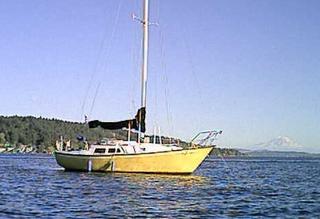 |
 |

"Any Sufficiently Advanced Technology Is Indistinguishable From Magic"
- Sir, Arthur C. Clarke (1917 - 2008)

If you've been to my apartment, you'd have to be pretty inobservant to miss the "2001: L' Odyssee de l' Espace" (yes, it's in French) movie poster that dominates one wall of my kitchen. If that didn't clue you into the fact that I've been a fan of Clarke, and of this particular film for, well - nearly 40 years now, certainly the original souvenier program, or the orignal sound track album, or the four first-editions of the "2001" novels that reside in my collection - along with a couple of other Clarke 1st eds - would probably be a good tip-off; and that doesn't even count the tattered paperback editions of Jerome Agel's 1968, "The Making of '2001'" and Clarke's "Lost Worlds of '2001'", or the much newer (and somewhat less thumbed-through) Bizony, or the three DVD versions, all buried in the warren of bookshelves in my bedroom. If you dug down deep into one of the boxes beneath my bed, you'd eventually come across a couple of pen-an-ink renderings of "2001" spacecraft I did in my mid-teens -
- okay, you probably get the picture by now. Needless to say, "2001" has been something of an obsession of mine since I convinced by dad to take me to see a screening at the old Hollywood Cinerama in Portland for my 8th birthday.
As I've gotten older, I've pretty much stopped reading Sci-Fi altogether, but would still pick up anything by Clarke: the "Rama" series was a particular favorite, and I also enjoyed "The Fountains of Paradise", which popularized the concept of a "space elevator", something that has been getting a fair amount of press coverage in recent years, due mainly to the efforts of programs like NASA's "Centennial Challenges", and groups like The LiftPort Group, located just across Puget Sound, in Bremerton, of all places.
What I've always enjoyed about Clarke's writing, over such contemporaries as Asimov and Heinlein, is his skill at negotiating between the "hard-science" fact-based fiction, and more metaphysical musings about life, art, extra-terrestrial intelligence, and our place in the universe. He was a masterful storyteller with a keen ability to project current technologies into the future to show how what we achieve in the present can influence our future.
The quote in the headline above I think sums up his extraordinary ability to synthesize these two seemingly disparate elements, science and metaphysics, in a way that both respected their separate spheres of influence, but which also acknowledged their collective impact on our achievements and philosophies.Labels: 2001: A Space Odyssey, Arthur C. Clarke, childhood
Posted byCOMTE
on 9:23 PM
|
 |


